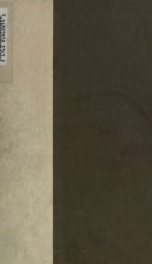Pindar
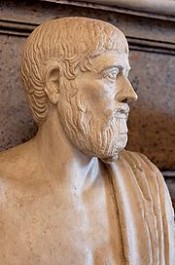
'Pindar (Greek: Πίνδαρος, Pindaros; Latin: Pindarus) (ca. 522–443 BC), was an Ancient Greek lyric poet. Of the canonical nine lyric poets of ancient Greece, Pindar is the one whose work is best preserved. Quintilian described him as "by far the greatest of the nine lyric poets, in virtue of his inspired magnificence, the beauty of his thoughts and figures, the rich exuberance of his language and matter, and his rolling flood of eloquence".[1] However, not all the ancients shared Quintilian's enthusiasm. The Athenian comic playwright Eupolis is said to have remarked that the poems of Pindar "are already reduced to silence by the disinclination of the multitude for elegant learning".[2] Modern tastes also have tended to vary between either enthusiasm or polite disinterest, especially since the discovery in 1896 of some poems by Pindar's rival Bacchylides, which allowed for useful comparisons. Till then, it was assumed by many scholars that Pindar's work was not only abstruse but also of questionable value artistically. Comparisons however led to the realization that some peculiarities of composition, evident in his Victory Odes, were typical of the genre rather than of the man.[3] The brilliance of his poetry began then to be more widely appreciated and yet there are still idiosyncracies in his style that challenge the reader and he continues to be a largely unread, even if admired poet.[4] The main events in Pindar's life[9][10] are here set out in reverse chronological order, a device frequently employed by Pindar himself in his narratives. Every night after the poet's death, the priest of Apollo at Delphi used to intone as he closed the temple doors: Let Pindar the poet go unto the supper of the gods. Pindar had himself been elected to the priesthood there and the iron chair, on which he had always sat during the festival of the Theoxenia, long remained one of the temple's prized exhibits. He had lived in an era when poets were considered to have an almost priestly function as interpreters to men of their place in the world and thus one of his odes, composed in honour of the athlete Diagoras of Rhodes, is said to have been copied in letters of gold on a temple wall in Lindos. Pindar lived to about eighty years of age and died sometime around 440 BC while attending a festival at Argos. It is said that his musically-gifted daughters, Eumetis and Protomache, took his ashes back home to Thebes. Nothing is recorded about his wife and son except their names, Megacleia and Daiphantus. The poet's house was located near a shrine to Alcman, the oracular son of the hero and oracle, Amphiaraus. Pindar seems to have stored some of his personal wealth there and he records in one of his odes (Pythian 8) that he had recently encounted Alcman on a journey to Delphi and received from him a prophecy - though he doesn't say what was prophesied. The house became a Theban landmark, especially when Thebes was demolished about a century later on the orders of Alexander the Great, the conqueror sparing the poet's house in gratitude for the verses he had composed in praise of his ancestor, king Alexander I of Macedon.[11] Pindar's fame as a poet introduced him to the troubled world of Greek politics, where he was often required to tread subtly between conflicting interests. His poems often reflect this, as in the following examples. Pindar also appears to have used his odes to advance his personal interests and those of his friends.[15] He composed two odes in honour of Arcesilas, king of Cyrene, (Pythians 4 and 5), pleading for the return from exile of a friend, Demophilus. In the latter ode Pindar proudly mentions his own ancestry, which he shared with the king, as an Aegeid or descendent of Aegeus, the legendary king of Athens. Branches of the Aegeid clan were found in many parts of the Greek world, intermarrying with ruling families in Thebes, in Sparta and in colonies established by Sparta, such as Cyrene. Membership in the clan contributed to Pindar's success as the poet of an international elite and it informed his political views, marked by a conservative preference for oligarchic governments of the Doric kind. Pindar's poetry also reflects rivalry with other poets, notably Simonides and his nephew Bacchylides. The competition for commissions included denigration of each other's abilities. Thus for example Olympian 2 and Pythian 2, composed in honour of the Sicilian tyrants Theron and Hieron, refer respectively to ravens and an ape, apparently signifying his rivals, engaged in a campaign of smears against him.[16] His original treatment of narrative myth, often relating events in reverse chronolical order, was especially a target for criticism by his rivals.[17] Commissions took Pindar to all parts of the Greek world - to the sites of the Panhellenic festivals in mainland Greece (Olympia, Delphi, Corinth and Nemea), as far west as Sicily, where he had friends among the ruling elite (notably Thrasybulus, the nephew of Theron of Acragas, but also Hieron of Syracuse, whom he probably befriended during a visit in 476 BC), eastwards to the seaboard of Asia Minor, north to Macedonia and Abdera (Paean 2) and south to Cyrene on the African coast. The Persian invasions of Greece in the reigns of Darius and Xerxes appear not to have had any significant effect on Pindar's career. It is possible that he spent much of his time at Aegina during the Persian invasion in 480/79 BC when Thebes was occupied by Xerxes' general, Mardonius, with whom many Theban aristocrats subsequently perished at the Battle of Plataea. The earlier invasion in 490 BC did not prevent him attending the Pythian Games for that year and it was there that that he first met the Sicilian prince, Thrasybulus. Thrasybulus had driven the winning chariot that year and he and Pindar formed a lasting friendship, paving the way for his subsequent visit to Sicily. Lyric verse was conventionally accompanied by music and dance and Pindar himself wrote the music and choreographed the dances for his victory odes. Sometimes he trained the performers at his home in Thebes and sometimes he trained them at the venue where they performed. He was about twenty years old in 498 BC when he was commissioned by the ruling family in Thessaly to compose his first victory ode (Pythian 10). He studied the art of lyric poetry in Athens and he is said to have received some helpful criticism from Corinna. It is reported moreover that he was stung on the mouth by a bee in his youth and this was the reason he became a poet of honey-like verses (an identical fate has been ascribed to other poets of the archaic period) Pindar was probably born in 522 BC or 518 BC (the 65th Olympiad) in Cynoscephalae, a village in Boeotia, not far from Thebes. His father's name is variously given as Daiphantus, Pagondas or Scopelinus and his mother's name was Cleodice.[18] Apart from the poems themselves, almost all the evidence for the facts of Pindar's life come from four biographical sources, fully compiled at least some 1400 years after his death: Although these four sources are based on a much older literary tradition, going as far back as Chamaeleon of Heraclea in the 4th century BC, they are widely viewed with scepticism by modern scholars.[19][20] Pindar probably spoke Boeotian Greek but he composed in a literary language fairly typical of archaic Greek poetry, relying on Doric dialect more consistently than his rival Bacchylides, for example, but less insistently than Alcman. There is an admixture of other dialects, especially Aeolic and epic forms, and there is an occasional use of some Boeotian words.[21] He composed choral songs of several types which, according to a Late Antique biographer, were subsequently grouped into seventeen books by scholars at the Library of Alexandria. They were, by genre:[22] Of this vast and varied corpus, only the epinikia — odes written to commemorate athletic victories — survive in complete form; the rest survive only by quotations in other ancient authors or from papyrus scraps unearthed in Egypt. Even in fragmentary form, however, the various genres reveal the same complexity of thought and language that are found in the victory odes.[23] The victory odes are divided into four books named after the four Panhellenic festivals in ancient Greece: the Olympian, Pythian, Isthmian, and Nemean Games, held respectively at Olympia, Delphi, Corinth and Nemea. This division reflects the fact that most of the odes honour victors in the athletic (and sometimes musical) contests associated with the four festivals. In a few odes, however, former victories and even victories in lesser games are sometimes celebrated, often being used as a pretext for addressing other issues or achievements. For example, Pythian 3, composed in honour of Hieron of Syracuse, briefly mentions an old victory he had once enjoyed at the Pythian Games, but it is actually intended to console him for his chronic illness. Nemean 9 and Nemean 10 celebrate victories in games at Sicyon and Argos, and Nemean 11 celebrates a victory in a municipal election on Tenedos, though it does include mention of some obscure athletic victories. These three Nemean odes are the final odes in the Nemean book and there is a historical reason for this. In the original manuscripts, the four books of odes were arranged in the order of importance assigned to the festivals, with the Nemean festival, considered least important, coming last. Any victory odes that lacked the aura of a Panhellenic subject were then bundled together at the end of the book of Nemean odes.[24] As mentioned in the introduction, Pindar's poetic style is unique and highly individualised even when the peculiarities of the genre are set aside. Key aspects of his personal approach to his craft can be found in the following strophe or stanza from Pythian 2, translated by G.S.Conway: Pindar presents himself as a poet/priest with a serious purpose and he boldly condemns the very different approach of Archilochus, a renowned poet of an earlier generation. Archilochus took a sardonic and often humourous view of his own and other people's foibles. Pindar, in contrast, is intensely earnest, preaching to high achievers like Hieron the need for moderation (wealth with wisdom) and submission to the divine will. The sky, the sea, god, Archilochus, Hieron and the human struggle for justice are all comprehended here in a single stanza, and yet this universalizing movement is in stark contrast with highly individual, even eccentric phrasing such as Grown fat on the harsh words of hate. The intensity of the stanza suggests that it is the culmination and climax of the poem. In fact, the stanza occupies the middle of Pythian 2 and the intensity is sustained throughout the poem from beginning to end. It is the sustained intensity of his poetry that Quintilian refers to above as a rolling flood of eloquence and Horace below refers to as the uncontrollable momentum of a river that has burst its banks. Sentences are compressed to the point of obscurity, unusual words and periphrases give the language an esoteric quality, transitions in meaning often seem erratic, and images seem to burst out - it's a style that baffles reason and which makes his poetry vivid and unforgetable.[27] "Pindar's power does not lie in the pedigrees of ... athletes, ... or the misbehavior of minor deities. It lies in a splendour of phrase and imagery that suggests the gold and purple of a sunset sky."[28]
do you like this author?
What readers are saying
What do you think? Write your own comment on this book!
write a commentWhat readers are saying
What do you think? Write your own comment on this author!
write a commentBook list

The Olympian and Pythian odes
Series:
Unknown
Year:
Unknown
Raiting:
3.5/5
Includes indexes 31
Show more
add to favoritesadd In favorites
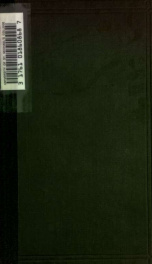
The Nemean and Isthmian odes : with notes explanatory and critical, introductions, and introductory essays
Series:
Unknown
Year:
Unknown
Raiting:
3/5
31
Show more
add to favoritesadd In favorites
Book list

The Olympian and Pythian odes
Series:
Unknown
Year:
Unknown
Raiting:
3.5/5
Includes indexes 31
Show more
add to favoritesadd In favorites

The Nemean and Isthmian odes : with notes explanatory and critical, introductions, and introductory essays
Series:
Unknown
Year:
Unknown
Raiting:
3/5
31
Show more
add to favoritesadd In favorites
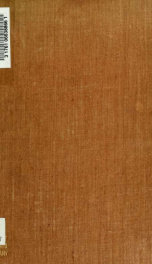
An inquiry into some passages in Dr. Johnson's lives of the poets: particularly his observations on lyric poetry, and the odes of Gray
Series:
Unknown
Year:
Unknown
Raiting:
3/5
26
Show more
add to favoritesadd In favorites

The extant odes. Translated into English with an introd. and short notes by Ernest Myers
Series:
Unknown
Year:
Unknown
Raiting:
3.5/5
26
Show more
add to favoritesadd In favorites
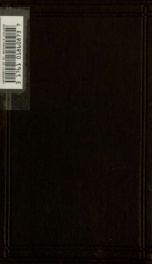
Pindar : The Nemean and Isthmian odes with notes
Series:
Unknown
Year:
Unknown
Raiting:
5/5
31
Show more
add to favoritesadd In favorites

Odes. Literally translated into English prose by Dawson W. Turner. To which is adjoined a metrical version by Abraham Moore
Series:
Unknown
Year:
Unknown
Raiting:
4.5/5
26
Show more
add to favoritesadd In favorites

Pindar. The Olympian and Pythian odes; with an introductory essay, notes, and indexes
Series:
Unknown
Year:
Unknown
Raiting:
3.5/5
26
Show more
add to favoritesadd In favorites

Carmina, ad fidem textus Böckhiani. Notas quasdam anglice scriptas adjecit Gulielmus Gifford Cookesley 4
Series:
Unknown
Year:
Unknown
Raiting:
4/5
26
Show more
add to favoritesadd In favorites
What readers are saying
What do you think? Write your own comment on this author!
write a commentif you like Pindar try:
readers also enjoyed
What readers are saying
What do you think? Write your own comment on this author!
write a commentGenre
if you like Pindar try:
readers also enjoyed
Do you want to exchange books? It’s EASY!
Get registered and find other users who want to give their favourite books to good hands!

